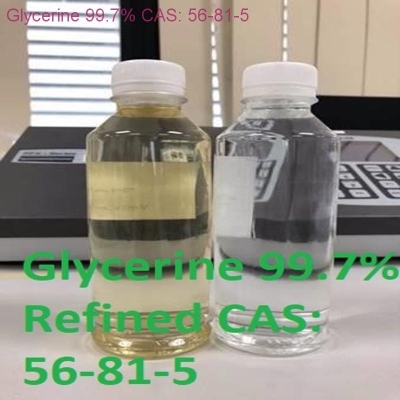-
Categories
-
Pharmaceutical Intermediates
-
Active Pharmaceutical Ingredients
-
Food Additives
- Industrial Coatings
- Agrochemicals
- Dyes and Pigments
- Surfactant
- Flavors and Fragrances
- Chemical Reagents
- Catalyst and Auxiliary
- Natural Products
- Inorganic Chemistry
-
Organic Chemistry
-
Biochemical Engineering
- Analytical Chemistry
- Cosmetic Ingredient
-
Pharmaceutical Intermediates
Promotion
ECHEMI Mall
Wholesale
Weekly Price
Exhibition
News
-
Trade Service
Non-alcoholic fatty liver disease (NAFLD), commonly known as fatty liver disease, is the most common chronic liver disease.
with the development of social economy and the improvement of people's living standard, the incidence of fatty liver in China has increased greatly in recent years, from 18% to 29.2%.
if not taken seriously, fatty liver disease can be further developed into fatty hepatitis, cirrhosis and hepatocellular carcinoma.
, it is particularly important to take early precautions.
a long-term clinical intervention study published in Gut on January 19th showed that a green Mediterranean diet significantly reduced in-liver fat accumulation and a 50 percent lower risk of NAFLD compared to other types of healthy diets.
In the 18-month DIRECT-PLUS randomized clinical trial, the researchers included 294 participants with abdominal obesity/hyperlipidemia from israel's Negave Nuclear Research Center and randomly assigned them to the Healthy Eating Group, the Mediterranean Diet Group and the Green Mediterranean Diet Group.
-green Mediterranean diet is a 440 mg/day polyphenol added to the Mediterranean diet, such as green tea (3-4 cups/day) and Mankai frozen milkshakes (100 g/day).
Mankai frozen milkshakes are rich in naturally effective proteins, iron, B12, vitamins, minerals and polyphenols.
addition, the intake of processed and red meat is also limited in the green Mediterranean diet.
healthy eating group received standard nutritional counseling to promote a healthy diet and achieve similar interventional intensity.
participants in all groups were physically exercised.
researchers used proton magnetic resonance spectrometry (MRS) to continuously measure changes in the proportion of fat in the liver.
results showed that after 18 months of life intervention, the prevalence of NAFLD decreased among all participants, the green Mediterranean diet declined significantly, and the prevalence of NAFLD decreased from 62 per cent at the baseline to 31.5 per cent.
mediterranean diet group and the healthy diet group fell to 47.9 per cent and 54.8 per cent, respectively.
in all dietary options.
of liver fat was reduced, with the green Mediterranean diet significantly reducing the accumulation of liver fat by up to 38.9 per cent, while the Mediterranean diet decreased by 19.6 per cent and the healthy diet by 12.2 per cent.
same time, participants in both the green Mediterranean diet and the Mediterranean diet had significant weight loss compared to healthy diets.
After 18 months of intervention, changes in weight and liver fat in the relationship between intra-liver fat and the gut microbiome were also significantly higher than in the total polyphenol serum folic acid levels in the plasma and the green Mediterranean diet group, and polyphenols were detected in the green Mediterranean diet group, and in all three groups, serum folic acid levels increased significantly in the green Mediterranean diet group.
increased intake of Mankai and walnuts was significantly associated with a decrease in the proportion of fat in the liver.
, the green Mediterranean diet is rich in polyphenols and reduces red/processed meat intake, not only reducing weight, but also significantly reducing liver fat.
also suggests that diet programs play an important role in preventing NAFLD.







